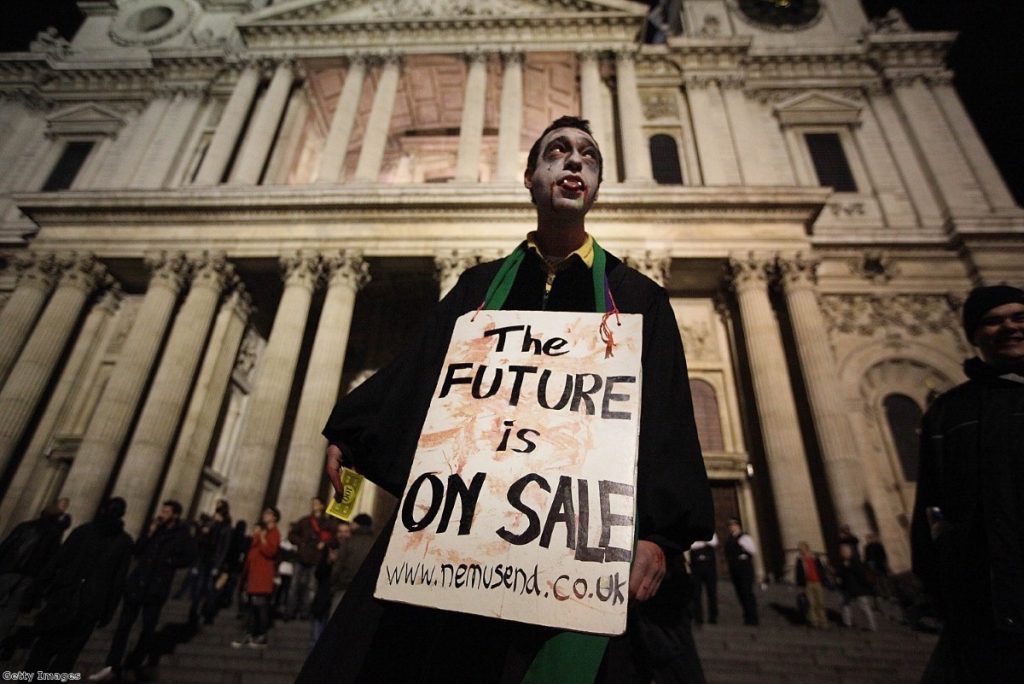Carey’s right: These are the final days of the Church of England
Even their own leaders realise it now. Yesterday, former Archbishop of Canterbury Lord Carey admitted the Church of England is just "one generation away from extinction".
According to a Tearfund Survey from 2007, two-thirds of adults in this country now have no connection with the Church, or any other religion. Regular church attendance stands at six per cent – down five per cent since the 80's. By 2020 it is predicted to stand at four per cent. The average age of the congregations gets steadily older. It was 37 in the eighties. It's 51 now. British religion is literally dying out.
Nevertheless, the religious occupy a space in the political and cultural discourse of this country which is completely at odds with the public's lack of interest in them. Earlier this month, the Lord's Prayer and a short sermon hijacked the Remembrance Service at the Cenotaph, turning a sombre moment into another opportunity to evangelise.
Every morning, Britain's most popular current affairs programme, the Today programme, makes way for a religious figure to deliver a 'thought for the day' – a privilege not afforded to the non-religious. And, in a piece of constitutional decrepitude, we still have done nothing to finally sever the link between Church and state.


The Queen sits at the head of both institutions, her position only tolerable for its laughable absurdity. The bishops still sit – unelected, unwanted and unloved – in the House of Lords. They make a laughing stock of Britain's claims to be a leading democracy.
This week, the General Synod meets to discuss matters which no thinking adult could possible countenance. Watching them argue about sexuality and gender is like trying to teach a caveman to use chopsticks. Why should we have any interest if they think a woman is entitled to hold a particular role, if gay people are allowed to pursue their happiness?
They are an echo of the past. They are of interest only as historical curiosities – a walking museum.
We do not have submit to the increasingly shrill and angry campaigning of the new atheist movement to rid ourselves of religion. Religion does not make someone a bad person.
It is perfectly obvious that Carey's successors, Rowan Williams and Justin Welby, are civilised, highly intelligent and conscientious men. It is clear that the new pope is a man of good will and compassion. Vicky Beeching, a new addition to the 'thought for the day' roster, has a generous and kind way of looking at the world.
But neither should the unquestionably good character of many religious adherents blind us to the moral poverty of their role.
This country has moved on from religion. The absolute knowledge, the moral and intellectual certainty, claimed by religion has never been a natural fit for the British personality, which recoils from pomposity and self-importance.
The continued role of religion in our society is a benign tyranny. The Church of England is too anaemic, too apologetic, to be considered truly dangerous. It does not have the same abysmal arrogance and cruelty of the Catholic Church. But for it to occupy a constitutionally mandated role in a country which demonstrably does not believe in it is democratically intolerable.
Carey's prognosis is sound. The young have no interest in the Church. It is finished. He has just failed to accept the obvious result.
The Church of England should be dismantled, with the same pragmatism and good humour with which we dismantled the empire. Let's pack it away and move on. It's over. It's done for.









